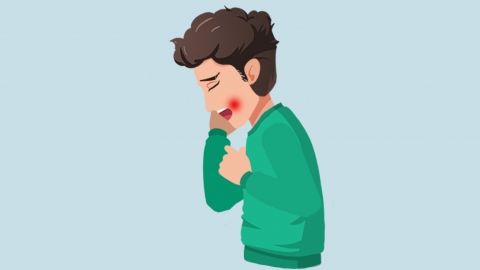What can be used to relieve toothache?
Generally, toothaches are often associated with dental infections, pulpitis, periodontitis, or gingival inflammation. Common symptoms include tooth pain, redness and swelling of the gums, and sensitivity to hot or cold stimuli. Patients may follow medical advice to use medications such as ibuprofen sustained-release capsules, metronidazole tablets, amoxicillin capsules, acetaminophen tablets, and compound chlorhexidine mouthwash to relieve symptoms. Detailed analysis is as follows:

1. Ibuprofen Sustained-Release Capsules
This medication belongs to the class of nonsteroidal anti-inflammatory drugs (NSAIDs) and works by inhibiting prostaglandin synthesis, thereby providing analgesic and anti-inflammatory effects. It effectively relieves moderate pain caused by dental inflammation, such as pain due to pulpitis or periodontitis. The sustained-release formulation prolongs the duration of pain relief and maintains stable drug efficacy, making it suitable for temporary relief of various types of toothaches.
2. Metronidazole Tablets
A nitroimidazole-class antimicrobial agent, metronidazole exhibits strong antibacterial activity against most anaerobic bacteria. If a toothache is caused by anaerobic bacterial infection—such as pericoronitis of wisdom teeth or periodontal abscess—this drug can inhibit bacterial proliferation, control the spread of infection, and reduce pain and swelling caused by inflammation.
3. Amoxicillin Capsules
An antibiotic in the penicillin class, amoxicillin exerts its bactericidal effect by inhibiting bacterial cell wall synthesis. It is effective against various Gram-positive bacteria (e.g., streptococci) and some Gram-negative bacteria that cause toothaches. It is often used in combination with metronidazole to enhance anti-infective efficacy and is suitable for toothaches resulting from bacterial infections, such as apical periodontitis and periodontitis.
4. Acetaminophen Tablets
This drug has antipyretic and analgesic properties and relieves mild to moderate tooth pain by inhibiting prostaglandin synthesis in the central nervous system. It causes less gastrointestinal irritation and is suitable for individuals who cannot tolerate ibuprofen, such as those with sensitive gastrointestinal tracts. It is particularly effective in relieving tooth sensitivity to hot and cold stimuli and mild dull pain.
5. Compound Chlorhexidine Mouthwash
A combination preparation containing chlorhexidine and metronidazole, this mouthwash has broad-spectrum antimicrobial activity. It helps suppress bacterial growth in the oral cavity, cleanses the surface of teeth and gums, and reduces pain caused by gingival inflammation, such as gum swelling and pain due to gingivitis or pericoronitis of wisdom teeth. It should be swished in the mouth and then spit out, serving as an adjunctive treatment to alleviate local discomfort.
In daily life, it's important to maintain good habits: avoid consuming foods that are excessively cold, hot, sour, sweet, or hard to minimize dental irritation; maintain oral hygiene by brushing teeth twice daily and rinsing after meals. If tooth pain persists or worsens, seek timely medical evaluation to identify the underlying cause. Self-medication should be avoided to prevent delays in proper treatment—for example, pulpitis often requires root canal therapy for complete resolution of pain.




